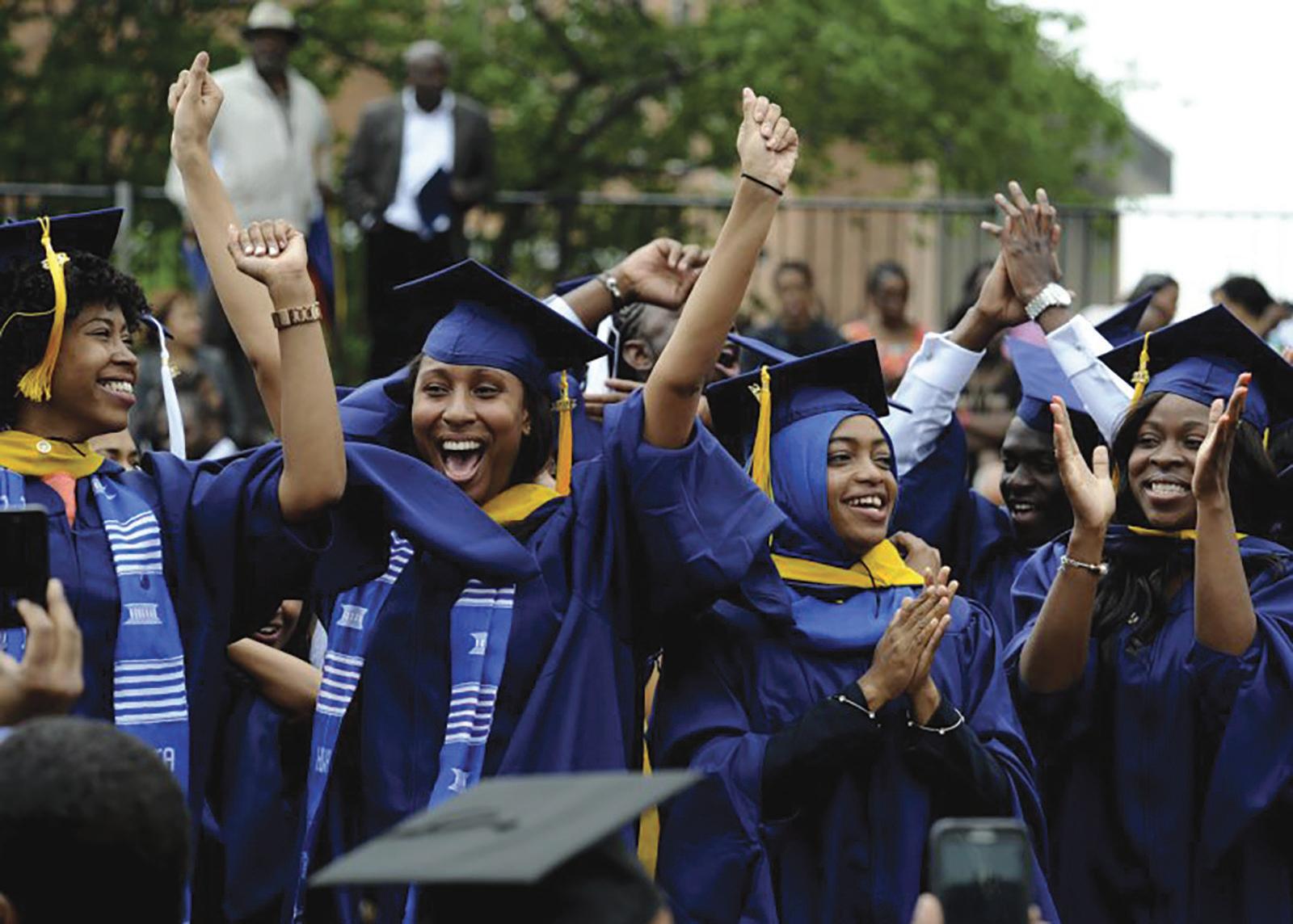
4 minute read
Education Department Launches Investigation into Harvard University’s Legacy Admissions
By Stacy M. Brown NNPA Newswire Senior National Correspondent
Following a complaint from advocacy groups that Harvard University was breaking federal law by using legacy admissions, the U.S. Department of Education has acted.
Advertisement
This week, the department formally notified Lawyers for Civil Rights, the organization that filed the complaint against Harvard, that it has initiated a probe into the university’s admissions process.
The Office for Civil Rights within the Education Department is investigating.
While confirming the investigation, an Education Department spokesperson refrained from providing further comments.
The complaint, a comprehensive 31-page document, was filed by the Greater Boston Latino Network and other advocacy groups.
Its central argument is that legacy admissions at Harvard place applicants of color at a significant disadvantage, contradicting the university’s purported commitment to promoting campus diversity.
According to the complaint, Harvard College grants special preferences to many predominantly white students yearly because of their familial ties to the university.
Applicants with relatives who are wealthy donors or Harvard alumni receive preferential treatment from the outset of the admissions process, receiving extra “tips” throughout.
As a result of this practice, known as “Donor and Legacy Preferences,” these students enjoy significantly higher acceptance rates than other applicants, making up as much as 15% of Harvard’s admitted students.
“The students who receive this preferential treatment – based solely on familial ties – are overwhelmingly white,” the complaint stated.
“Nearly 70% of donor-related applicants are white, and nearly 70% of legacy applicants are white. The results of this preferential treatment are substantial.”
For example, over the period 2014–2019, the complaint notes that donor-related applicants were nearly seven times more likely to be admitted than non-donorrelated applicants.
Additionally, legacy applicants were almost six times more likely to be admitted than nonlegacy applicants.
The complaint asserts that donor and legacy preferences disproportionately favor white applicants and systematically disadvantage students of color, including Black, Latinx, and Asian Americans.

“A benefit provided to some applicants but not to others necessarily advantages the former group at the expense of the latter,” the complainants wrote, quoting the U.S. Supreme Court, which struck down affirmative action-based admissions in higher education.
The complaint, a comprehensive 31-page document, was filed by the Greater Boston Latino Network and other advocacy groups.

The advocacy groups behind the complaint have urged the Education Department to intervene, calling on the institution to declare that Harvard must discontinue the use of legacy admissions if it intends to continue receiving federal funds.
The complaint maintains that legacy admissions lack educational justification and are awarded without considering the applicants’ credentials or merits. Instead, it solely benefits individuals born into specific families.
Legacy admissions practices at Harvard and other universities have faced increased scrutiny, particularly after a court ruling and comments from President Joe Biden.
The President stated that legacy admissions contribute to expanding privilege rather than promoting equal opportunities.
Moreover, the NAACP has joined in calling for an end to this practice, asserting that it disproportionately favors white applicants.
The complaint concludes that granting a spot to a legacy or donor-related applicant essentially denies that opportunity to another candidate who meets the admissions criteria solely based on their merit.
The advocates argue that removing legacy and donor preferences would result in more students of color being admitted to Harvard.
“This preferential treatment violates federal law,” the complaint stated. “Specifically, because Harvard receives substantial federal funds, it is bound by Title VI of the Civil Rights Act of 1964 and its implementing regulations, which forbid practices that have an unjustified disparate impact on the basis of race.”
“The parties are pleased that they were able to find a way to resolve this matter outside of Court and will have no further comment about the settlement,” Crump said in a statement.
Thermo Fisher representatives didn’t immediately respond to requests by phone and email from The Associated Press for comment on Tuesday.
HeLa cells were discovered to have unique properties. While most cell samples died shortly after being removed from the body, her cells survived and thrived in laboratories. This exceptional quality made it possible to cultivate her cells indefinitely –– they became known as the first immortalized human cell line –– making it possible for scientists anywhere to reproduce studies using identical cells.
The remarkable science involved –– and the impact on the Lacks family, some of whom suffered from chronic illnesses without health insurance ––were documented in a bestselling book by Rebecca Skloot, “The Immortal Life of Henrietta Lacks,” and Oprah Winfrey portrayed her daughter in an HBO movie about the story. Lacks was 31 when she died and was buried in an unmarked grave. A poor tobacco farmer from southern Virginia, she was raising five children when doctors discovered a tumor in her cervix and saved a sample of her cancer cells collected during a biopsy.
Johns Hopkins said it never sold or profited from the cell lines, but many companies have patented ways of using them.
In their complaint, Lacks’ grandchildren and other descendants argued that her treatment illustrates a much larger issue that persists into the present day: racism inside the American medical system.
“The exploitation of Henrietta Lacks represents the unfortunately common struggle experienced by Black people throughout history,” the complaint reads. “Too often, the history of medical experimentation in the United States has been the history of medical racism.”
Thermo Fisher argued the case should be dismissed because it was filed after the statute of limitations expired, but attorneys for the family said that shouldn’t apply because the company is continuously benefitting from the cells.
In a statement posted to their website, Johns Hopkins Medicine officials said they reviewed all interactions with Lacks and her family after the 2010 publication of Skloot’s book. While acknowledging an ethical responsibility, it said the medical system “has never sold or profited from the discovery or distribution of HeLa cells and does not own the rights to the HeLa cell line.``
Crump, a civil rights attorney, has become well known for representing victims of police violence and calling for racial justice, especially in the aftermath of George Floyd’s murder. The Lacks family joined him Tuesday morning near Baltimore’s waterfront to announce the settlement and pay tribute to Lacks on what would have been her 103rd birthday. The group brought balloons and a cake to celebrate.
“There couldn’t have been a more fitting day for her to have justice, for her family to have relief,” her grandson Alfred Lacks Carter Jr. said. “It was a long fight –– over 70 years –– and Henrietta Lacks gets her day.”
Last week, U.S. senators Chris Van Hollen and Ben Cardin, both Maryland Democrats, introduced a bill to posthumously award Lacks the Congressional Gold Medal.
“Henrietta Lacks changed the course of modern medicine,” Van Hollen said in a statement announcing the bill. “It is long past time that we recognize her lifesaving contributions to the world.”










